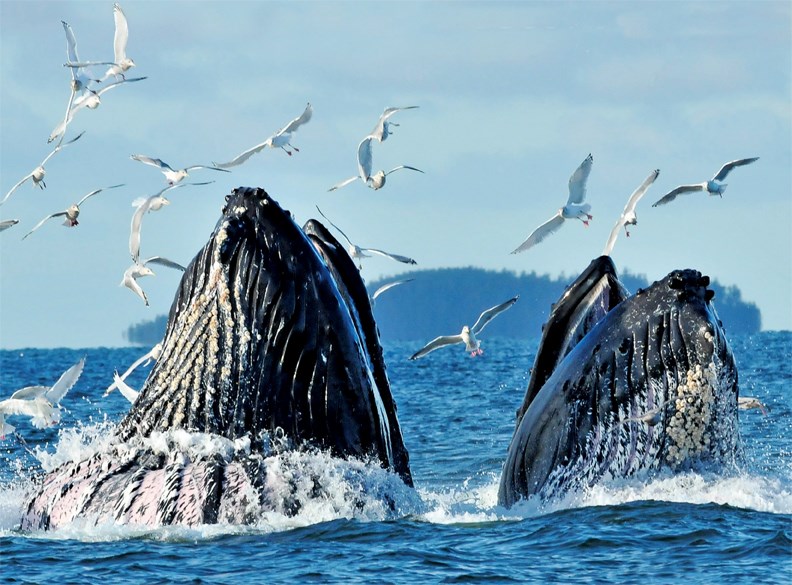The B.C. Cetacean Sightings Network is requesting the public’s help in counting whales, dolphins and porpoises for conservation-based research. The Sightings Network is conducting Cetacean Census over the August long weekend from French Creek/Madeira Park to northern Quadra Island, and they need your help.
Sightings Network collects opportunistic sightings of cetaceans (whales, dolphins and porpoises) from diverse observers across the B.C. coast year round. Additionally, this year, they are conducting a specific study involving a concentrated citizen science census over one weekend in the Northern Strait of Georgia. Although cetaceans are found throughout B.C.’s waters, the Sightings Network receives limited information about how these threatened and endangered animals utilize this area.
By participating in the census and reporting your sightings, you will help researchers determine the abundance, distribution and habitat use of cetaceans in the Northern Strait of Georgia. Whether observing by boat or land, the Sightings Network encourages you to get involved. Participate in the Northern Strait Cetacean Census this Aug. 5 to 7 (register at www.cetaceancensus.ca) and let them know what you have seen.
Census-style data collection has a rich history in B.C. In the early 1970s, Dr. Michael Bigg of Fisheries and Oceans Canada was asked to count the number of wild killer whales along the coast of B.C. To get a quick estimate of the killer whale population, Bigg conducted a public census, and the response was hugely successful. In 1971, thanks to reports from the public, Bigg established an estimate of approximately 250 killer whales from southeast Alaska to California, an estimate that was proven to be highly accurate. The results put a permanent end to the capture of killer whales in Canada and the U.S.
Since Bigg’s census, keen members of the public have continued to report sightings of cetaceans and sea turtles in B.C. In 1999, the B.C. Cetacean Sightings Network was established, and continues to maintain these data in one place, and in a consistent format that makes it valuable and available to researchers, NGOs and government.
– Submitted



